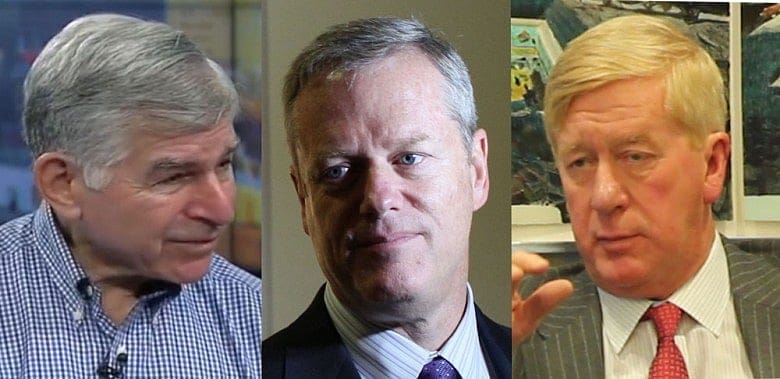Baker hears rail link pitches from Dukakis, Weld

Written by Matt Murphy and Colin A. Young
STATE HOUSE — Gov. Charlie Baker did not rule out his administration embarking on a rail tunnel project to link North Station and South Station on Wednesday, but the Republican appeared at odds with Gov. Michael Dukakis over whether an expansion of South Station and the rail link were mutually exclusive projects.

